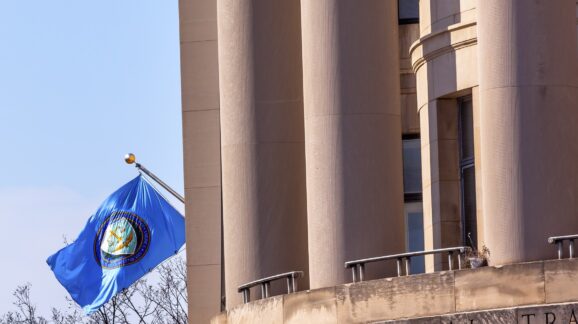How valuable will anonymous comments be to the Ferguson FTC?

Photo Credit: Getty
Comments to the Federal Trade Commission (FTC) for its “Inquiry on Tech Censorship” are due next month on May 21, 2025, and the public has already submitted over 2,000. The request for information (RFI), titled “Request for Public Comment Regarding Technology Platform Censorship,” seeks to explore how tech platforms block or limit user access due to their speech or affiliations, and if those actions violate the law.
FTC Chair Andrew Ferguson provided some tough talk in the press release associated with the announcement of the RFI. “Tech firms should not be bullying their users,” he said. “This inquiry will help the FTC better understand how these firms may have violated the law by silencing and intimidating Americans for speaking their minds.”
Roughly 571 of the comments submitted have been done so anonymously as of April 21, 2025. That’s more than 25 percent of the total submitted so far. We’ll have to wait to see how much weight Chair Ferguson gives these comments, considering he has criticized the FTC’s reliance on anonymous comments in the past. During the prior administration, then-commissioner Ferguson wrote a concurrence on the release of the Commission’s first Pharmacy Benefit Mangers Interim Staff Report. The FTC reviewed over 1,200 comments in its study of Pharmacy Benefit Mangers (PBMs), and over 160 were submitted anonymously. Ferguson said,
My colleagues are correct that comments, even anonymous ones, are an important part of the Commission’s enforcement and 6(b) process. But we ought to treat anonymous comments with circumspection. After all, we cannot know who submitted the comments, nor do we have any method for verifying the accuracy of a single word they contain. We therefore cannot be sure how much weight, if any, to accord them as we try to understand these markets. The PBM Interim Staff Report nevertheless ascribes those anonymous submissions to independent pharmacies, or pharmacies generally, and treats their contents as fact.
Chair Ferguson also criticized the reliance on anonymous comments in the release of the FTC’s rule banning non-compete agreements, which has been set aside by a federal district court. Ferguson said, “we announce a national rule of private conduct on the basis of a handful of empirical studies and unverifiable, often anonymous comments purporting to describe particular noncompete agreements….”
Considering the percentage of anonymous comments submitted to the RFI (26.4 percent) is significantly higher than that of the PBM study (12.9 percent), one would expect Ferguson to treat them with at least as much skepticism, if not more. To be clear, some anonymous comments are not void of value, so long as they provide verifiable information.
The high percentage of anonymous comments does illustrate that Americans value anonymity online. Some current and former lawmakers have proposed banning anonymous users on social media platforms in the past. Nikki Haley made the proposal on the campaign trail in 2023, but later walked back the suggestion. Sens. Ron Johnson (R-WI) and John Kennedy (R-LA) have floated the idea as well. Both federal and state proposals requiring age verification also threaten anonymity online and are running headfirst into First Amendment challenges.
However, FTC Chair Andrew Ferguson has a point when it comes to filing comments on official proceedings. The Commission is asking the public about potential violations of the law. And the anonymity of comments makes them highly susceptible to adverse regulatory capture, something the current administration is looking to curtail.
There’s a myriad of issues underlying the RFI’s theories of law regarding the content moderation decisions of large tech platforms, likely best explained by Dan Gilman with the International Center for Law & Economics. And it’s important that Ferguson’s FTC avoid the errors of Lina Khan’s FTC.